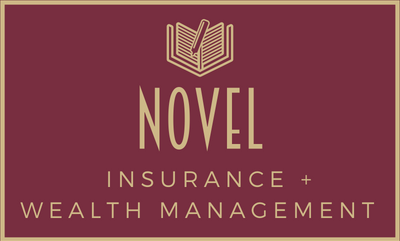According to a new study from insurancequotes.com, how much your creditworthiness determines your insurance premiums may be higher than you think.
Poor credit can severely impact how much you pay for your insurance, in some cases doubling - or even tripling - your premiums depending on where you live.
The report found that if you have fair credit, you’ll pay an average of 28% more for car insurance than a driver with excellent credit. And if you have poor credit, your premium doubles, increasing your rate by 103%.
In Florida, the results were even more stark. With fair credit you can expect an increase of 49%, with poor credit a 129.5% increase compared to those with excellent credit scores.
“Credit-based insurance scores are used by almost every insurance company in the nation because it’s a very good segmentation tool,” says Lamont Boyd, insurance underwriting expert at the credit-based insurance scoring firm FICO. “It’s such a powerful tool because it is very, very predictive of future losses. In other words, lower scoring individuals typically have more insurance losses than those in the higher ranges, which means they are more expensive to insure.”
To that end, one’s credit-based insurance score is created using approximately 20 to 30 different aspects of financial data collected by the major credit bureaus. They may include:
- Outstanding debt
- Length of credit history
- Late payments
- Collections and bankruptcies
- New applications for credit
So what can I do?
Credit scores are not build overnight, and repairing an already damaged score is no different. However, there are some proactive steps that you can take to assist in raising your score dramatically over just a few months.
1. Keep your credit card utilization low
One of the biggest factors that impact our credit scores is the balances that we keep on credit, especially credit cards. It is ideal to keep your utilization below 30% across all of your accounts, but the lower the better. If you are unable to pay off your debt as fast as you'd like, consider asking your lender if they will raise your credit limit. As long as you are not making new purchases, this will lower your utilization automatically. Keeping utilization low month after month will improve your score greatly in just a short amount of time.
2. Avoid late payments
Sometimes this is easier said than done. If your paycheck came late or you simply forgot to make your payment one month, consider talking to your lender. Oftentimes, if you notify your lender in advance of a late payment with intent to pay, not only will they not report the late payment to reporting agencies but they may waive your late fee. Also, take a look at your credit report through free services like CreditKarma to make sure that your reported payment history is correct. Late payments can have a high impact on your score, so if you see any discrepancies, make sure to dispute them.
3. Don't apply for many accounts at once
There are two reasons for this. It can be tempting to apply for as many credit accounts as possible when you need the credit lines or when trying to decrease credit utilization. However, all of these hard inquiries on your credit can damage your score and new accounts can also lower your credit age. Your credit age is not just tied to your oldest account, but is an average of all of your accounts. Keep this in mind when applying for lines of credit, only apply for what you need and for accounts that you have the greatest probability of being approved for.
4. Deal with any delinquencies you may have
While it can be embarrassing and stressful to deal with delinquent accounts, doing something about them is always better than doing nothing. Oftentimes creditors are very flexible about payments structures and terms. After all, they just want to get paid. See if they will waive interest charges, late fees or other fees in return for a payment agreement. If a payment agreement is reached, make sure that these terms are not considered settling the account for less than owed, as this can damage your score, as well. Also, make sure to receive in writing that the delinquency will be erased from your credit history. If there are any disputes in the future, this paperwork will come in handy.
5. Consider consolidation
This option is usually reserved for those who hope to repair their credit rapidly, but there are right ways and wrong ways of doing this. The most common form is to take a personal loan for the amount of debt owed across your various lines of credit, and hopefully start making one payment on the loan at a more advantageous interest rate than paying those credit accounts separately. While this can be helpful, there are many predatory lenders in the marketplace, so make sure you look into any company you may wish to get involved with.

